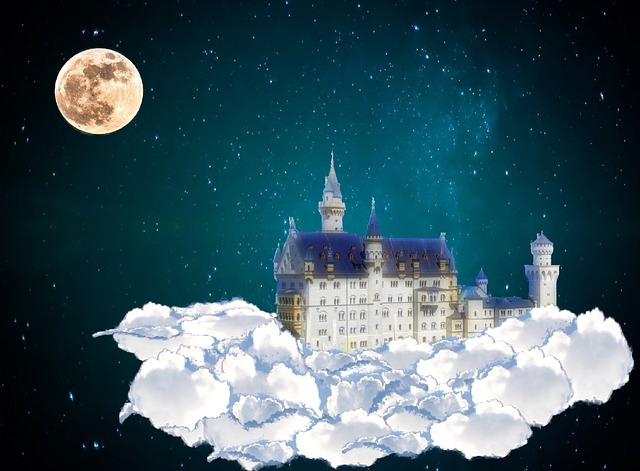
Dreams are really f*cking weird.
It’s so strange that when we allow our minds the chance to be completely at ease, we are presented with the most fantastically bizarre experiences that our imagination could conjure up.
Dreams have become so normalized that we don’t think about how unbelievably absurd it is to drift off to the deepest landscapes of our psyche every time we rest our eyes.
This is our natural tendency. When we cease to have our minds focused on a particular task, they tend to meander their way into the domain of the unconscious. We do this during the day all the time in what is commonly referred to as a “daydream,” but it becomes much more vivid when we are actually asleep.
So, the question is: What do dreams mean, if anything?
I didn’t intend to write this article, even after reading a chapter on dream analysis by C.G. Jung. I thought it would be too boring and esoteric—that is, until I had the most powerful and impactful dream of my life last night.
I have always thought about the potential importance of dreams—I even did an independent study project on dream analysis in school—but I never really trekked deeply into it in my personal life. I found dreams to be far too random and nonsensical to be of much use.
To answer the question, here is Jung’s take:
“Dreams give information about the secrets of the inner life and reveal to the dreamer hidden factors of his personality. As long as these are undiscovered, they disturb his waking life and betray themselves only in the form of symptoms. This means that we cannot effectively treat the patient from the side of consciousness alone, but must bring about a change in and through the unconscious.”
In essence, dreams show us what we have been repressing about ourselves in our daily lives. They reveal to us what we have been storing up deep inside of ourselves, from our most heartfelt longings to our most deeply seated fears.
This can be especially useful information to us, because it is here that we can begin to address and improve upon who we actually are. In attempting to understand our dreams, we are shedding light on the things we have neglected about ourselves. This is important because the things we have neglected about ourselves are the things that can harm us.
“Until you make the unconscious conscious, it will direct your life, and you will call it fate.” ~ C.G. Jung
The dream I had last night is a fitting illustration of this. I dreamt that I had done something in a moment of extreme duress that made me look like an absolutely atrocious person. It was filmed, and the video went viral. I was excommunicated by virtually everyone I knew and seen as some kind of villain by the whole world. I was in legal trouble, financial duress, physical danger, and was likely going to be in a perpetual state of sexual frustration—all as a result of how I was now seen.
As horrible as it all felt, there was a strange sense of relief hiding beneath all this. It was as though the pressure of needing to be loved and admired was completely alleviated. The deeply rooted desire within me to be honored and appreciated was dissolved, because there was no hope of ever being looked upon that way again. It was almost comforting to no longer have to care about what people thought of me.
This revealed to me how invested I am in my image, and how I will invariably come to a point where I have to forgo it completely, particularly in light of the ways I have been speaking out about my generation. It is a sacrifice I must make if I am going to speak my truth in a public forum—one that I am entirely willing to make.
Dreams speak to the things we have yet to acknowledge about ourselves, and it is only through acknowledging these unconscious drives that we can make some sense of ourselves.
The better we understand ourselves, the more fulfilled we will be as human beings.
We cannot get what we want unless we know who we are.
~
~
~
Author: Samuel Kronen
Image: Pixabay
Editor: Danielle Beutell
Copy editor: Yoli Ramazzina
Social editor: Catharine Monkman

 Share on bsky
Share on bsky






Read 0 comments and reply